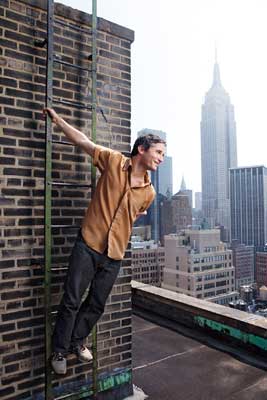I worked on and off in construction for ten years. It’s hard work, and after a while you wonder if you can do it your whole life. I also wanted to be more socially involved and culturally influenced—to investigate places and people. I got my MFA in poetry in 2004 from New York University and looked for jobs at socially conscious journals, but nothing really worked out. A friend got a job with Doctors Without Borders, and I thought, If he can do this, maybe I can, too. What appealed to me was the intellectual aspect of doing good and saving lives. I applied online, got confirmed, and waited for an assignment. As a logistics supervisor, I oversee projects in Haiti, Nigeria, Ethiopia, Somalia, and Uganda. If you need a field clinic, I make contact with the local community, then get people there, build a shelter, get electricity, water, sanitation, HR. I spend about half my time traveling and am the go-between from the field to the technical department. We’re always reflective; there’s a constant critique of humanitarian and medical intervention. It’s the perfect conjunction of the experiences I’d had and the direction I wanted to go in.
HOW YOU CAN DO IT: Doctors Without Borders and other aid groups post opportunities on their websites. Another good resource is nonprofit hub Idealist.org, which lists thousands of jobs, internships, and volunteer positions as well as information on graduate-degree programs and careers in nonprofits. Field-position pay varies; with Doctors Without Borders, it starts at $1,400 per month.


